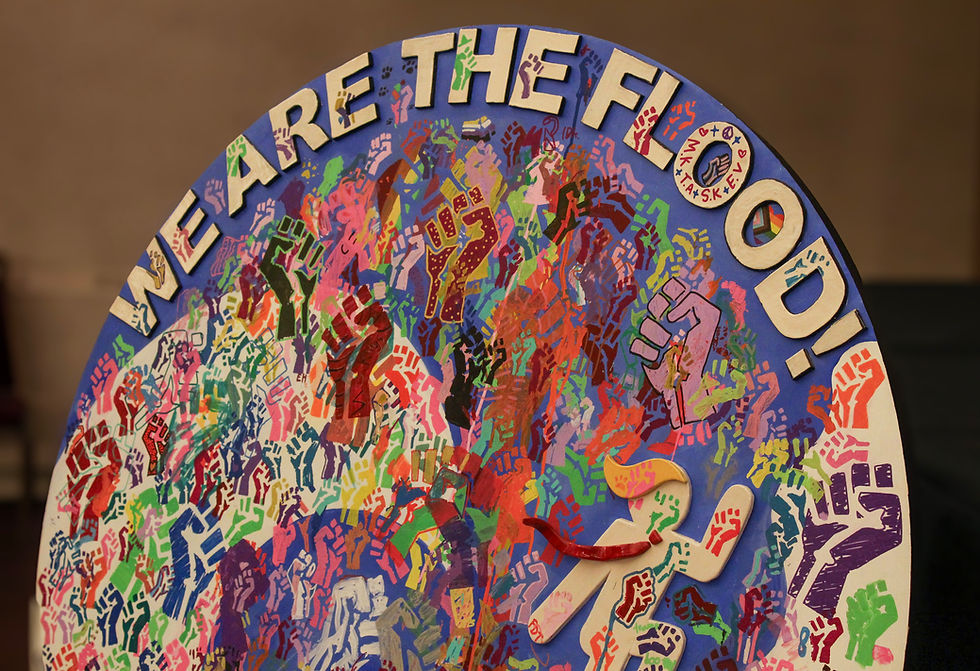Food Justice Week highlights sustainability programs and efforts on campus
- Collegian staff
- Mar 16, 2020
- 3 min read
Jacob Bloom
Staff writer
jhbloom@willamette.edu
Last week, Community Service Learning (CSL) and a variety of organizations at Willamette University participated in a Food Justice campaign that seeks to address and combat issues such as food disparity and food insecurity. Throughout the week, a food audit, convocation and food labelling event occured. According to the website NIH.gov, food disparity and food insecurity are defined as problems people face when they are unable to access nutritious food or are forced to go hungry due to financial or geographic restrictions. Food justice can be broadly defined as a grassroots movement with the goal of providing equal access to healthy food for everyone.
According to CSL Coordinator Sarah Connor (‘21), a major goal of Food Justice Week is to communicate to students the current efforts that are already going on at Willamette to achieve greater food justice. Connor said that although presently there are many food justice programs at Willamette, many students are unaware of them or do not know how to get involved.
This week’s convocation addressed this lack of awareness and aimed to inform and connect students to these resources. It consisted of a panel of members from food justice groups at Willamette, including the Food Recovery Network, Students for Sustainability, Delta Chi Beta and Zena Farm Club.
“We try to do one service event and a few educational events because our whole goal is service learning. A main goal for Food Justice Week is disseminating information to the student body in order to make the changes on campus that we want. People don’t even know that the Bearcat Pantry exists, people don’t know food is there... Our goal is not to start up new programs, but to educate students about what’s already there,” said Connor.
A major part of Food Justice Week has been its collaboration with CSL, which provides students with the opportunity to volunteer in the Willamette and Salem communities. On Monday, volunteers worked to label containers for the Bearcat Bites Program, which provides healthy free food to students experiencing financial hardships and food insecurity. Volunteers had planned to package meals into jars to put in the Bearcat Pantry, but given sanitation concerns regarding COVID-19, this plan was called off.
This past Tuesday, Wednesday and Thursday from 5 to 7 p.m., CSL conducted “food audits,” which sought to raise student awareness on food waste.
During a typical night at Goudy Commons, Willamette students gather in the cafeteria and choose from a variety of prepared foods set out for them across different stations. After they are finished eating, they place their cups, plates, trays and leftovers on a conveyor belt that carries the dishes and leftover food to an area where the dishes are washed and food is either composted or disposed of.
During the “food audits” that took place this week, volunteers for Food Justice Week set up a station across from where students normally dispose of their food, with a sign encouraging all students to put their leftovers in the “food audit” tray. After each of the three nights, volunteers measured the amount of uneaten food students left in the audit tray. The goal of this activity was to encourage Willamette students to become more aware of the food they do not eat. It also acted as an experiment of sorts to determine whether a simple “food audit” would reduce the amount of waste students produce over the course of three nights. Over the course of three days, 215 pounds of food waste were collected.
“The all you can eat model is really problematic in terms of food waste, because people will fill up their tray with food and then not eat half of it,” said Hailey Paisley (‘21), who works for Bon Appetite on Willamette’s campus.
Connor said that many Willamette students are unaware of what happens to their leftover food and Goudy’s food waste procedures. One specific organization she pointed to is the Food Recovery Network, which takes leftover food from Goudy to distribute to the Salem community. She also said that an awareness of what happens to leftover food would help minimize waste.
“At Goudy, if you leave everything on your plate it’s composted or recycled—people often throw away their food. Leave everything on your plate. Try to reduce as much food as you can while you’re eating,” said Connor.
Paisley agreed with Connor, but also added that she thinks a systematic change is necessary to tackle issues such as food disparity and insecurity.
“Reducing food waste is really important, and it’s upsetting that there are so many people that go hungry when we have more than enough food for everyone… it’s a matter of distribution,” said Paisley. “I think those are things that are more important than getting people to not take an extra scoop of mash potatoes, but it’s all for the same goal, so it’s cool. I do think it’s good to be aware of the things that you contribute personally, while also working to attack bigger systems.”




Comments